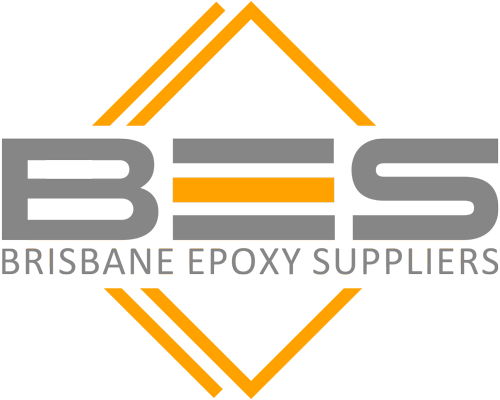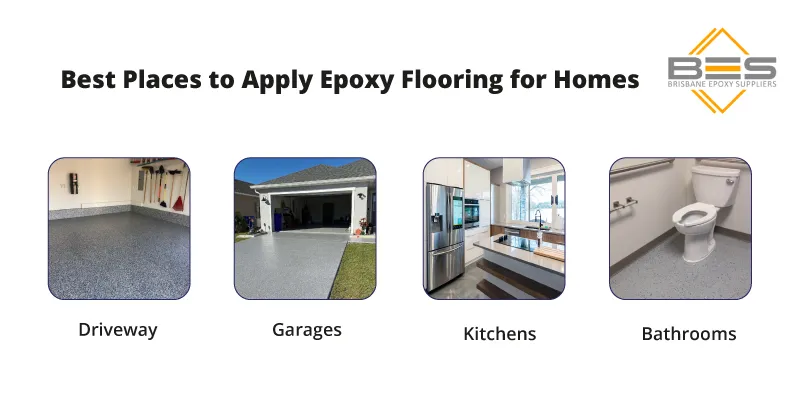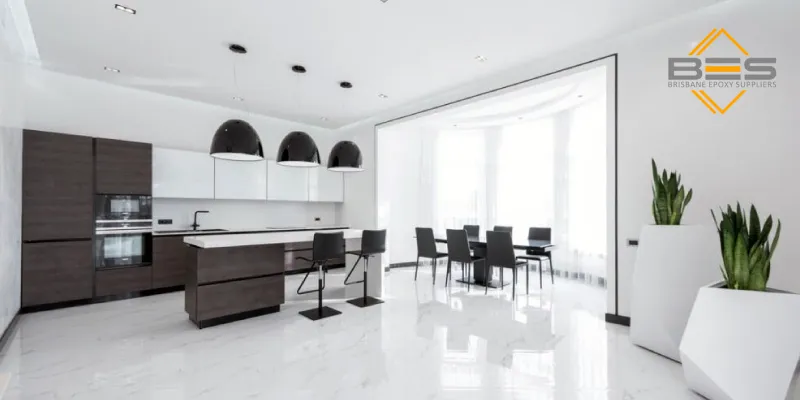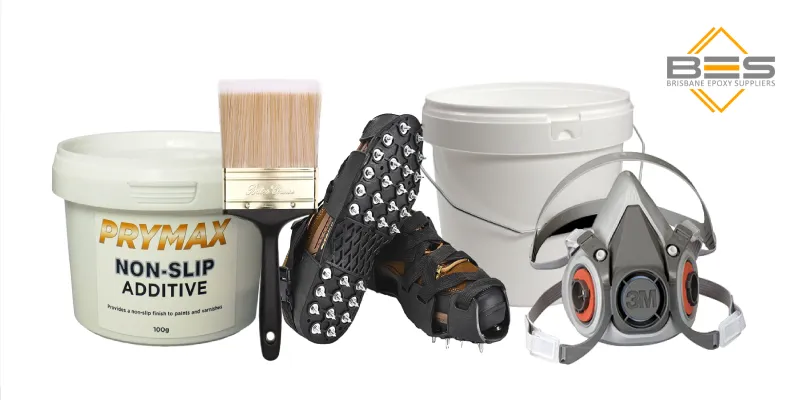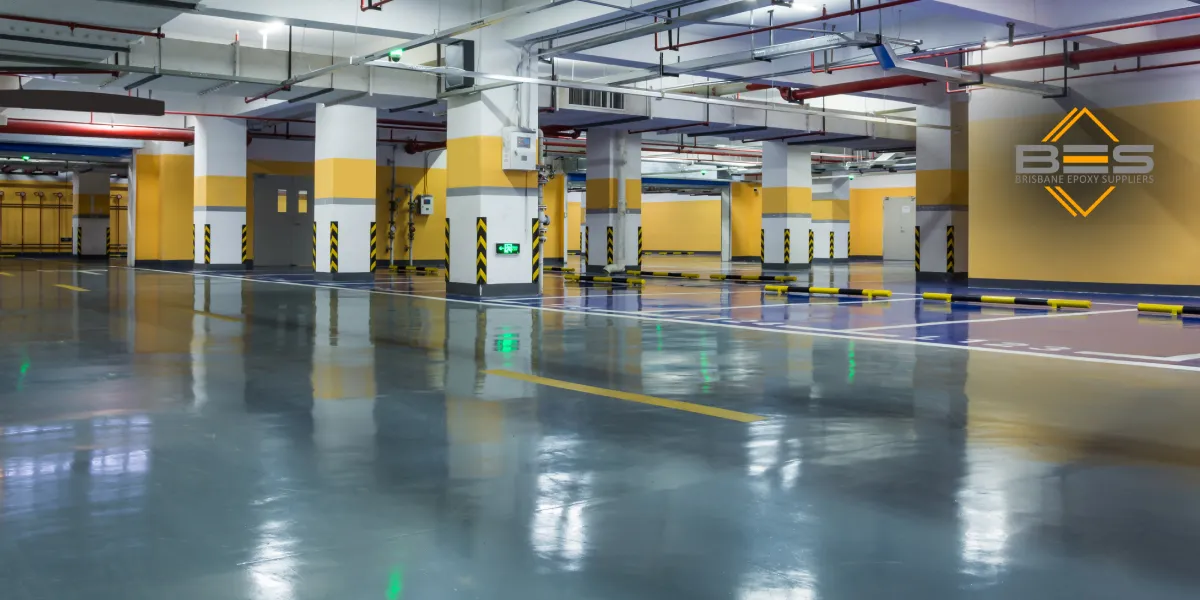Best Guide to Epoxy Flooring for Homes: Benefits, Costs & How to Apply
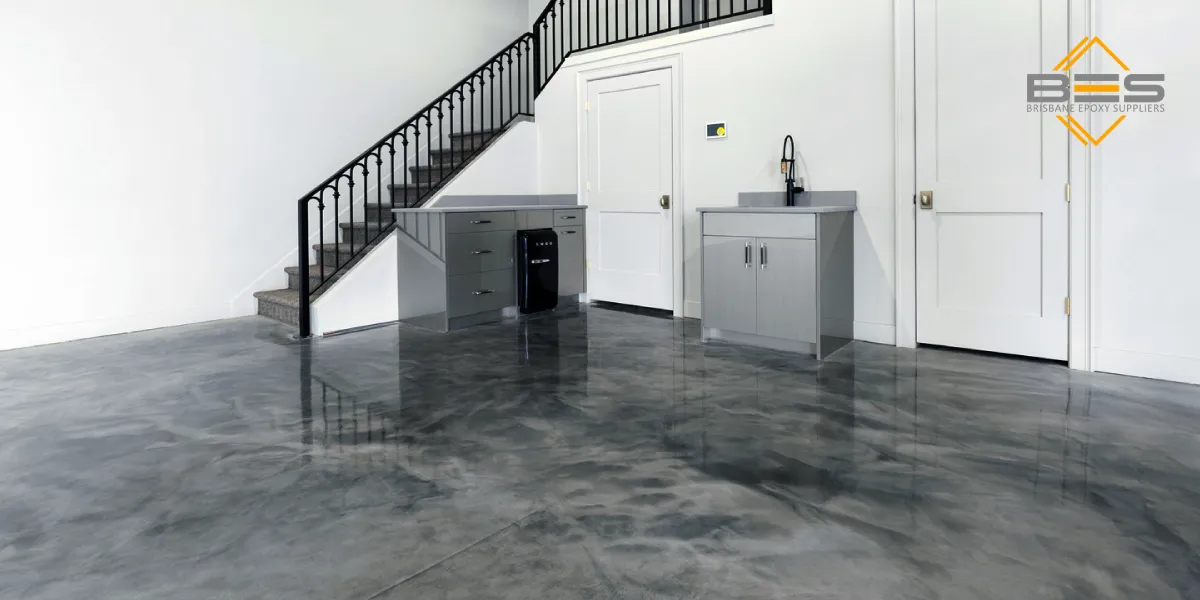
Is it even a wise decision to choose epoxy flooring for homes? How could you possibly choose a suitable kind of epoxy flooring for your home? It’s obvious that these days, epoxy floor coating has gained so much popularity among people, especially homeowners.
Do you know why epoxy flooring is a good choice for your home? What is epoxy flooring after all? Epoxy flooring is a durable and modern coating that consists of epoxy resin and hardener. It doesn’t matter if you are searching for a cost-effective way to renovate your garage floor or add a sleek finish to your living room; epoxy flooring is your only solution.
Best Places to Apply Epoxy Flooring for Homes
Epoxy flooring isn’t only for industrial places. We can use it in a wide range of places, including commercial and even residential buildings. Since epoxy floors come in a variety of colors and designs, and every one of them has its advantages and uses, it is considered a perfect choice for multiple areas in your home. Here’s where epoxy flooring works best:
Driveway
It’s a new and unique use of epoxy flooring. An epoxy driveway makes everything easier for you. Since epoxy floor coating is durable and can withstand high foot and machinery traffic, it is considered one of the best choices.
Garages
On one hand, oil spills, tire marks, and heavy use are common issues in garages. On the other hand, we always worry about the final look and appearance of our garage floors. Not only are epoxy floors resistant, but they also offer an attractive and polished look.
Kitchens
Kitchens are the heart of the home, and women always worry about the design and durability of kitchen floors. The good news is that epoxy floors have it all. Their easy-to-clean and various styles of epoxy floors make it easy for women to choose their favorite flooring.
Bathrooms
The uses of epoxy floors are not limited to dry places in the home. We can add water-resistant and slip-resistant additives to epoxy floors and use them in bathrooms. They offer a sleek, modern look while being functional.
Living Rooms and Entryways
If you are searching for a way to create a polished and modern look in your living room, epoxy is your best choice. Epoxy floors come in different styles, like metallic or flake designs, that can transform your place into a pure, amazing place.
Necessary Tools and Materials for Applying Epoxy Floors
Now that you have chosen epoxy floor coating, you need to prepare all the necessary tools and materials to apply epoxy flooring for your home. Here’s a list of essential tools and materials to get the job done. You have to gather all the essential tools and then start your enjoyable DIY project. If you don’t have any of these tools at home, you need to buy them.
- Paint Roller: You’ll need a paint roller for applying the epoxy evenly on the surface.
- Brush: Use paint brushes for the edges of the room that are hard to reach, and paint rollers can’t get there.
- Spiked Shoes: You shouldn’t walk on wet epoxy. Therefore, you’re going to need spiked shoes during applying epoxy.
- Mixing Bucket: You need a tough and strong mixing bucket to combine the resin and hardener.
- Protective Gear: When you mix epoxy resin and hardener, they emit dangerous fumes. Therefore, you have to wear gloves, safety goggles, and a respirator mask. When the epoxy is dry, it’s safe.
- Non-Slip Additives: For places like bathrooms and garages, you can add a layer of non-slip additive to the epoxy floor to make it safe.
Step-by-Step Guide to Applying Epoxy Floor
You can apply epoxy floor coating by yourself, or you could leave it in the professionals’ hands. If it’s a DIY project for you, you can easily buy DIY-Friendly epoxy kits at the store and get the job done. Here’s a detailed step-by-step guide to help you apply epoxy floor coating in your home:
Step 1: Prepare the Floor
First of all, you need to clean the floor with a vacuum cleaner and mop. Remove any remaining dirt, debris, and oil with water and soap. If you want the epoxy floor to bond properly to the concrete, you should clean the floor thoroughly. If there’s a crack or hole on the floor, fill it with concrete crack filler and let it dry.
Step 2: Grind the Surface
For the epoxy resin to adhere correctly to the surface, you need to create a slightly rough texture. Wear your protective gear and use a concrete etcher to prepare the surface.
Step 3: Apply a Primer
This step is optional. Applying the primer will help the epoxy adhere better. If the concrete surface is porous, it’s better to apply primer before epoxy resin. After applying the primer with a roller, you should allow it to dry. The primer should be completely dry before applying the epoxy layer.
Step 4: Prepare the Epoxy
Mix the epoxy resin and hardener in a bucket according to the instructions on your epoxy kit. If you don’t mix these two materials thoroughly, it may cause bubbles or an uneven finish. Reading the instructions on the epoxy kit will help you along the way.
Step 5: Apply the First Coat
In order to avoid walking on the wet epoxy, start at the back of the room and work your way toward the exit. Use a paintbrush and roller to apply the first coat of epoxy on the floor. Roller is good for spreading epoxy evenly on the surface, and brush is suitable for edges and corners.
Step 6: Apply Second Coat
This step is also optional, and it depends on your budget and preferences. If you prefer a more durable and even finish, you can apply a second coat of epoxy. At this stage, you can add non-slip additives or decorative flakes to the epoxy. In the end, you should let the second coat of epoxy cure for about 48 to 72 hours. Enjoy your epoxy flooring!
Cost of Epoxy Flooring for Homes
We are getting asked more often about the cost and prices of epoxy flooring for homes. It’s time to get a comprehensive look at the final price and the factors affecting price. Generally, the price of epoxy flooring depends on several factors. Here are the factors.
- Size of the Area: It’s obvious that larger areas require more epoxy and time, which will increase the overall cost. However, for very large areas, you can get a significant discount on the final price.
- Type of Epoxy Resin: Surely, different kinds of epoxy have different prices. If the final price is important to you, then you should know that solid epoxy is less expensive than metallic or decorative finishes. These two kinds of epoxy require more material and an intricate application.
- Condition of the Surface: Preparing the floor before applying epoxy is one of the most important parts of the work. If the floor requires significant preparation work, this will surely add to the final cost. Grinding and crack filling are part of the preparation step.
- Labor Costs: You can find DIY-friendly epoxy kits in the market. However, if you prefer professional installation, you should pay more. Epoxy installation generally costs between $5 and $12 per square foot. The final price depends on the volume and complexity of the job.
Does Epoxy Flooring Increase Home Value?
To be honest, YES! Epoxy floors are durable, long-lasting, and easy to maintain. Unlike other traditional floorings, you don’t have to worry about regular cleaning or renewing it after several years. The aesthetic appeal of epoxy flooring for homes makes it an attractive feature for potential buyers. Therefore, it increases the value of the home.
Potential buyers always adore the long-lasting and low-maintenance qualities of epoxy flooring for homes, especially in areas like garages and basements. These houses start out in the market, and buyers love the fact that they won’t need to replace or repair the floor anytime soon.
Conclusion:
In conclusion, epoxy flooring for homes is not only a stylish and modern choice but also a practical and cost-effective solution. Whether you want to upgrade your garage, kitchen, bathroom, or living room, epoxy floors offer durability, easy maintenance, and impressive visual appeal. With the right tools and proper installation, homeowners can achieve professional results even with a DIY approach. Considering the benefits and value it adds, epoxy flooring for homes is undoubtedly a smart investment that enhances both functionality and resale potential.
